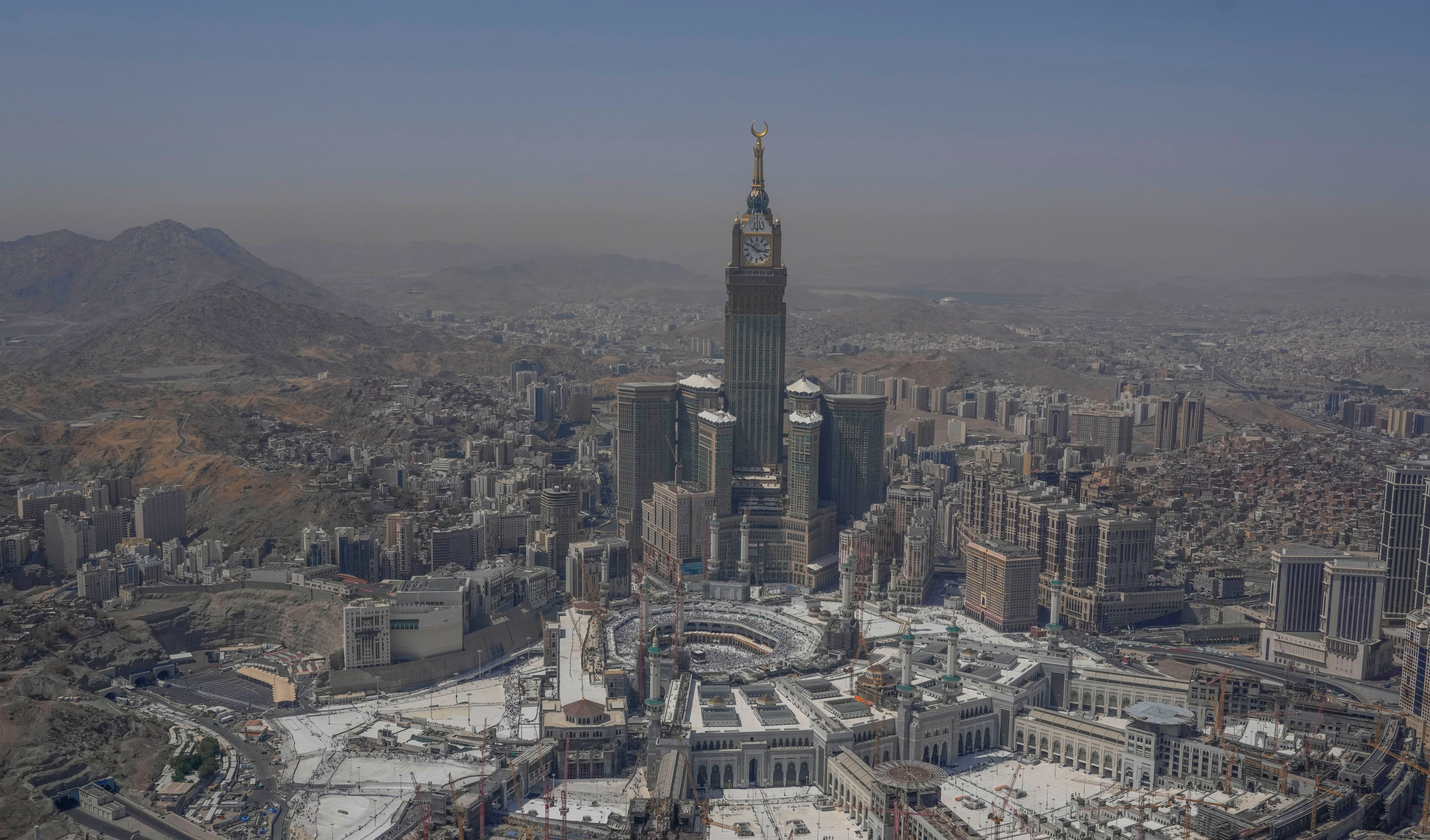Iran urges unity during Hajj as Saudi-Iran ties continue to improve
Iranian Hajj official calls for respectful conduct during pilgrimage and urges Saudi Arabia to show tolerance, amid renewed Iran-Saudi ties following high-level diplomatic talks.
-

Muslim pilgrims circumambulate the Kaaba, at the Grand Mosque, during the annual Hajj pilgrimage in Mecca, Saudi Arabia, on June 17, 2024. (AP)
The head of Iran's Hajj and Pilgrimage Organization, Ali Reza Bayat, has called on Iranian pilgrims to show full respect while in Saudi Arabia and avoid any actions that could “provoke division, fragmentation, or discord” during the upcoming Hajj season.
Bayat stressed the importance of preserving Islamic unity through pilgrim behavior, urging vigilance to avoid conduct that could be misinterpreted or used to harm inter-Muslim relations.
He also called on Saudi authorities to engage pilgrims with tolerance and sensitivity.
This year's pilgrimage season carries additional significance as it marks the first time since 2015 that Saudi Arabia has resumed direct flights to Iran to facilitate the travel of Iranian pilgrims. Over 225 flights are scheduled to carry Iranian nationals to the holy sites in the coming weeks.
Read more: Saudi Arabia authorizes foreign property investments in holy cities
Renewed Iran-Saudi engagement
Bayat’s comments come in the broader context of ongoing efforts to restore full diplomatic engagement between Tehran and Riyadh.
In April, Iranian Leader Sayyed Ali Khamenei received Saudi Defense Minister Prince Khalid bin Salman in Tehran. During the high-level meeting, Prince Khalid delivered a message from Saudi King Salman and expressed the Kingdom’s desire to expand cooperation “across all areas.”
Sayyed Khamenei welcomed the move, saying that stronger ties between Iran and Saudi Arabia “will benefit both nations” and emphasized that “hostile intentions” against the rapprochement must be overcome.
Highlighting the importance of regional solidarity, Khamenei added, “It is far better for brothers to help each other than to rely on outsiders.”
The Hajj pilgrimage now serves as a key arena for translating diplomatic progress into people-to-people engagement, as both sides cautiously navigate a post-detente phase marked by regional turbulence but growing interest in cooperation.
Read more: Pezeshkian tells MBS Iran not in pursuit of war, calls for unity

 2 Min Read
2 Min Read










